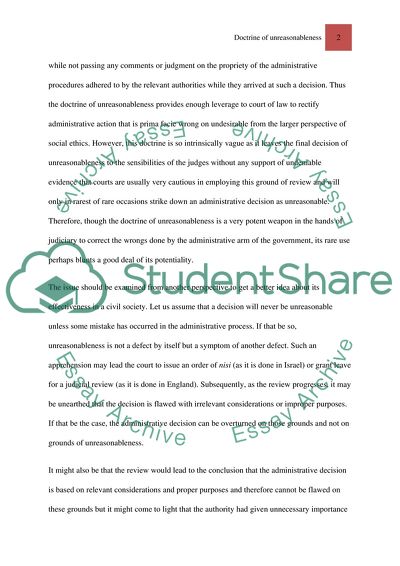Cite this document
(A Doctrine of Administrative Unreasonableness Coursework - 1, n.d.)
A Doctrine of Administrative Unreasonableness Coursework - 1. Retrieved from https://studentshare.org/law/1748175-there-is-no-point-in-having-a-doctrine-of-administrative-unreasonableness-discuss
A Doctrine of Administrative Unreasonableness Coursework - 1. Retrieved from https://studentshare.org/law/1748175-there-is-no-point-in-having-a-doctrine-of-administrative-unreasonableness-discuss
(A Doctrine of Administrative Unreasonableness Coursework - 1)
A Doctrine of Administrative Unreasonableness Coursework - 1. https://studentshare.org/law/1748175-there-is-no-point-in-having-a-doctrine-of-administrative-unreasonableness-discuss.
A Doctrine of Administrative Unreasonableness Coursework - 1. https://studentshare.org/law/1748175-there-is-no-point-in-having-a-doctrine-of-administrative-unreasonableness-discuss.
“A Doctrine of Administrative Unreasonableness Coursework - 1”. https://studentshare.org/law/1748175-there-is-no-point-in-having-a-doctrine-of-administrative-unreasonableness-discuss.


